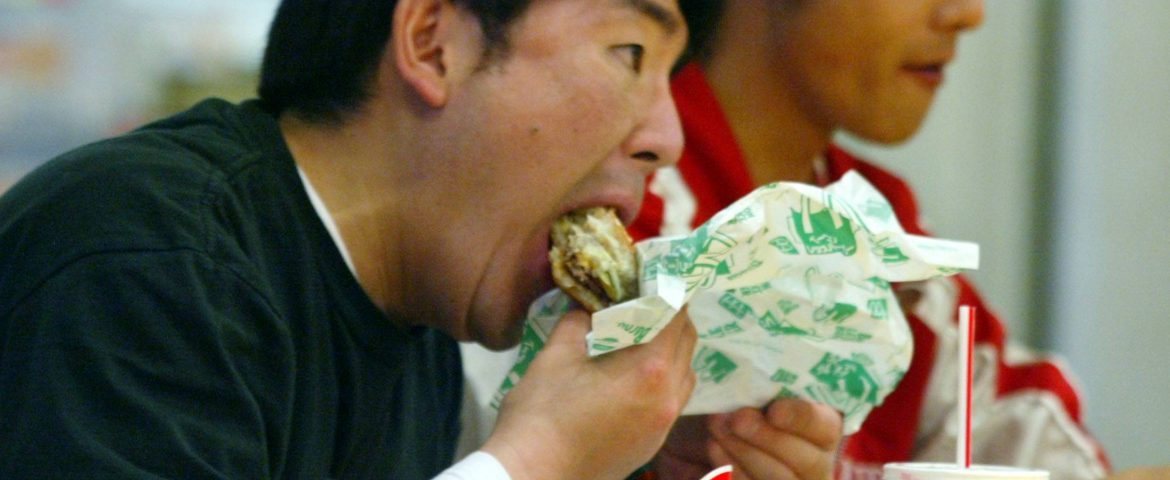
As 2018 kicks off, some of us are hoping to make changes. Maybe we want to earn more, get fit, do something to better our health, or even (for crazies like yours truly) hope to change the world.
For sure, it takes more than waving a wand to effect personal change. Motivation matters. But even willpower alone may not suffice.
What can be surprisingly powerful is studying the data – tracking goals over time to measure progress. Ideally, you should do this for at least three months (the time needed to instill a habit).
Last year, I kept track of my fitness routine for a few months, and, for a shorter period, my daily diet. My fitness tracker (described in this column) recorded every step I took, and the distance and speed of cycling and running. For my diet log, I noted everything I ate and estimated the percentage of meat, vegetables, fruit and processed food consumed.
I have to say, the hard data can be compelling. When the numbers are in your face, there’s no hiding from missing a target. And when you’ve got good results in a stretch, you won’t want to “break the chain”. The rising monthly average for my number of steps provided the momentum to push further.
My daily diet log revealed weaknesses in my diet. On some days, for example, I didn’t eat much fruit. It was a challenge to stay healthy when eating out. Malaysians prioritize taste and price before health.
But we pay the price for that in the long run. Diet is so fundamental to good health, energy, and performance. If you’re still looking at what new year resolutions to adopt, consider improving your diet.
Actually, the whole country needs to go on a national diet plan. The data speaks for itself: soaring heart disease and diabetes cases, and obesity numbers that have earned us the title “Fattest Nation of Asia”.
In fact, the government is working at a new set of policies to address this, which include limiting restaurant hours past midnight, taxing sweetened beverages, a ban on advertisements of unhealthy or junk foods, and weighing in health considerations when determining promotions for civil servants.
Radical new policies indeed, but governments must play a part in protecting the nation’s health, even in matters such as diet.
There was a time when people could smoke wherever they wanted and cigarette companies targeted youth in advertising. We had to bring in laws to stop that. The tobacco companies did not accept this willingly. Even in the 1990s, they were downplaying the health effects of smoking.
Global health experts have said that the next “big battle” in public health will be with the multinational food and drink giants. Already, a handful of multinationals are determining what people around the world eat and drink. These companies aggressively market their products in developing countries. Sales of ultra-processed foods high in salt, sugar, and fat, and sugary fizzy drinks are rising rapidly, and this, in turn, is leading to a global epidemic of obesity and related diseases. Certainly, in Malaysia, ultra-processed foods, from instant noodles to chocolate drinks, have a strong place.
The public health response to this has been slow, partly because these companies have intricate ties with relevant agencies. In Malaysia, nutrition scientists have reportedly accepted funding from food companies for research, calling the research into question.
Noted nutrition researcher Carlos Monteiro in Brazil believes developing countries must take action against the giant food companies to protect traditional food systems and dietary patterns.
Monteiro says analyses of dietary data from various countries have shown that the main way to cut excess sugar intake is to replace “ultraprocessed foods” with minimally-processed foods. Put simply, throw out the junk and keep the traditional home-cooked foods.
The “junk” – carbonated drinks, cookies, sweets, instant noodles, potato chips and whatnot – often contain synthetic ingredients, refined starches and cheap remnants of animals that do us no good.
In an e-mail interview, Monteiro says that the role of civil society is critical. “Without civil society pressure, politicians will not challenge Big Food [the multinational food companies],” he says.
So when you cook up a storm at home and choose to avoid the junk, you’re not just doing your health a favor. You’re also contributing towards protecting the country’s health and food systems.
You see, we can think about changing the world. But it starts with changing our own habits first.









